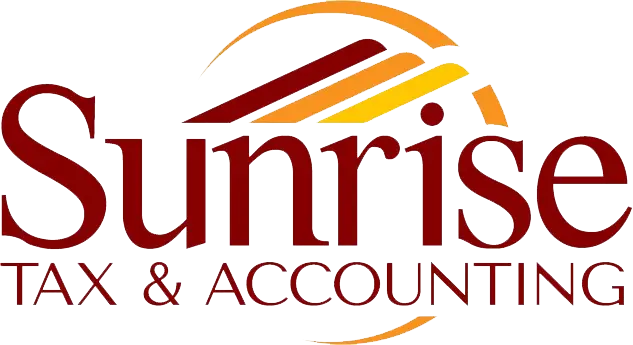
Hey there, Kansas City entrepreneurs! Running a small business is both exciting and challenging. One area that often leaves many business owners scratching their heads is tax planning. But don’t worry – with a little bit of guidance, you can navigate the complexities of taxes and even find ways to save money.
From incentives to discovering tax deductions for small businesses in Kansas City, explore some tax planning tips. These strategies will help you learn how to save on taxes as a small business in Kansas City.
1. Understand Your Business Structure
First things first, know your business structure. Whether you’re a sole proprietor, partnership, LLC, S-Corp, or C-Corp, each structure has different tax implications.
- Sole Proprietorship: This is the simplest structure. Your business income is your income, so you’ll report it on your personal tax return.
- Partnership: This involves two or more people. Profits and losses are passed through to partners and reported on their personal tax returns.
- LLC (Limited Liability Company): Offers flexibility. It can be taxed as a sole proprietorship, partnership, or corporation.
- S-Corp: Allows profits to pass through to your personal tax return but can help you avoid self-employment taxes on part of your income.
- C-Corp: This is taxed separately from the owners, and you might face double taxation – on profits and dividends.
Choosing the right structure is crucial because it affects how much you pay in taxes and the forms you’ll need to file.
2. Keep Detailed Records
Good record-keeping is the backbone of effective tax planning and an essential thing while you explore how to save on taxes as a small business in Kansas City. Use accounting software like QuickBooks or Xero to track your income and expenses. Keep receipts, invoices, and other financial documents organized. Not only will this make tax time less stressful, but it also ensures you’re ready if the IRS ever comes knocking.
3. Understand Deductible Expenses
Knowing what you can deduct is a key part of tax planning to significantly reduce your tax burden. Here are some common tax deductions for small businesses in Kansas City.
- Home Office: If you work from home, you can deduct a portion of your mortgage or rent, utilities, and insurance.
- Supplies and Equipment: Deduct the cost of office supplies, equipment, and software necessary for running your business.
- Travel Expenses: Business travel, including airfare, lodging, and meals, can be deductible.
- Vehicle Use: If you use your vehicle for business, you can deduct either the actual expenses or the standard mileage rate.
- Employee Salaries and Benefits: Wages paid to employees and contributions to their retirement plans can be deducted.
- Professional Services: Fees paid to accountants, lawyers, or consultants related to your business are deductible.
4. Take Advantage of Tax Credits
Tax credits can reduce your tax bill dollar-for-dollar. Some key credits for small businesses include:
- Small Business Health Care Tax Credit: If you provide health insurance to your employees, you may qualify for this credit.
- Research and Development (R&D) Credit: Available if your business is involved in technological research or innovation.
- Work Opportunity Tax Credit: For hiring individuals from certain groups that face employment barriers, like veterans.
5. Plan for Quarterly Taxes
Unlike personal taxes, small businesses often need to make quarterly estimated tax payments. This tax planning section includes income tax and self-employment tax for Social Security and Medicare. Missing these payments can lead to penalties, so mark your calendar with the due dates: April 15, June 15, September 15, and January 15 of the following year.
6. Consider Retirement Plans
While you seek for how to save on taxes as a small business in Kansas City, take a note – Setting up a retirement plan can provide tax benefits. Contributions to plans like SEP IRAs, SIMPLE IRAs, or 401(k)s are tax-deductible. Plus, they help you save for the future while attracting and retaining employees.
7. Utilize Section 179 and Bonus Depreciation
Section 179 allows you to deduct the full cost of qualifying equipment and software purchased or financed during the tax year. Bonus depreciation lets you take an additional deduction for certain assets. These incentives can lead to significant tax savings, especially if you invest in costly equipment.
8. Hire Family Members
If you have a family business, consider hiring your spouse or children. Wages paid to family members can be deductible, and in some cases, you might be able to avoid certain payroll taxes.
9. Stay Updated with Tax Law Changes
Tax laws are always changing, and staying updated is crucial. For instance, the Tax Cuts and Jobs Act of 2017 brought significant changes that still impact small businesses. Consider joining local business associations, attending workshops, or subscribing to tax newsletters to keep abreast of new developments.
10. Work with a Tax Professional
Perhaps the most valuable tip is to work with a tax professional. An experienced accountant or tax advisor can provide personalized advice, help you maximize deductions, and ensure compliance with tax laws. They can also represent you in case of an audit.
11. Plan for the Future
Tax planning isn’t just about the present; it’s about the future too. Consider where you want your business to be in 5 or 10 years and how your tax strategy can support those goals. Regularly review your business structure, expenses, and tax strategies to ensure they align with your long-term objectives.
12. Local Kansas City Tax Incentives
Kansas City offers various incentives for small businesses, such as property tax abatements and tax increment financing. These incentives are designed to encourage business growth and can provide substantial savings. Check out the Kansas City Economic Development Corporation’s website for more details.
Conclusion
Navigating the world of taxes can be daunting, but with the right strategies, you can make it work in your favor. Understanding your business structure, keeping meticulous records, knowing what you can deduct, and staying on top of tax credits and quarterly payments are crucial steps. Don’t hesitate to seek professional advice to ensure you’re maximizing your tax savings and staying compliant.
Remember, every dollar saved on taxes is a dollar you can reinvest into growing your Kansas City small business.
Don’t leave money on the table! Contact us today at 1(816) 456-4324 or darlis@sunrisetaxaccounting.com and let our team of Certified Public Accountants customize a comprehensive tax plan for your small business. We are happy to answer any questions you may have about reducing your taxes and ensuring compliance.
When you partner with Sunrise Tax & Accounting, you gain more than just a tax preparer – you get knowledgeable advisors committed to your financial success. Take the first step by contacting us today!
FAQs
Are there specific tax incentives for small businesses in Kansas City?
Yes, Kansas City offers various incentives like property tax abatements and tax increment financing to encourage business growth.
How can I stay updated with changes in tax laws affecting my small business?
Join local business associations, attend workshops, or subscribe to tax newsletters for updates on tax law changes.
Can I deduct expenses for hiring family members in my small business?
Yes, wages paid to family members employed in your business can be deductible expenses, provided their roles and compensation are reasonable.
